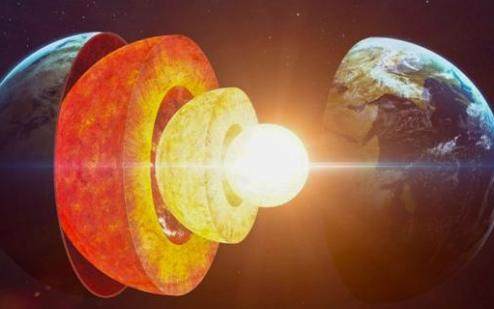Experts said China will need to intensify exploration of the subsoil to meet the country’s particular strategic needs, from finding and exploiting underground resources to forecasting and containing natural disasters.
Deep Earth sciences, which have been gaining popularity for years, include geology, mineralogy, seismology, geothermal energy and other sciences that deal with understanding the internal structure of the Earth and the use of its resources.
Compared with the other three regions, the exploration of the Earth’s crust is a relatively unknown region as it takes enormous resources, manpower and technological prowess to penetrate the Earth’s crust, experts said. But since the mid-20th century, more and more countries have become aware of the strategic importance of this region.
Liu Jiakei, a geophysicist and a member of the Chinese Academy of Natural Sciences (CAS), said deep-earth sciences are closely related to the release of Earth’s mineral and energy resources. They also played a major role in protecting the environment and reducing the risks of natural disasters such as earthquakes and volcanic eruptions.
“It is a science that supports and sustains life on Earth. Without it, we cannot thrive,” he said, adding that long-term economic growth is highly dependent on supplies of fossil fuels and basic raw materials, all of which are created by complex geological activity and must be mined from the ground. .
Xu Yigang, a geochemist and CAS member, said China’s focus on inland exploration is because the country needs to reduce its over-reliance on imports of iron, copper, nickel, petroleum and natural gas.
“So we need to intensify our basic research in Earth sciences so that we can find and extract the resources our country needs,” he said.
For example, according to the Chinese Ministry of Commerce, many of the world’s largest iron ore mines are located in Australia, Brazil and Russia. Although China has the fourth largest reserves of hot metal ore in the world, most of the ore is located deep in the earth and is very expensive to mine and process.
In 2005, China carried out the first scientific ground drilling, which, according to the geological service, reached 5,158.2 meters below the Dabi-Solo collision zone in the east of the country (near Qingdao). Such a well should give an insight into the history of the evolution of so-called ultra-high pressure rocks. This project is about the geodynamic process that led to the formation of these globally unique rocks.
This made China the third country in the world after Russia and Germany to drill deeper than 5,000 metres.
In recent years, China has stepped up its exploration of the Earth, according to geophysicist Liu. In 2009, the Ministry of Lands and Resources launched a research initiative looking at techniques for drilling deep into the ground. Another major research program was pursued by the Ministry of Science and Technology in 2016, focusing on the extraction of underground resources.
Chinese scientists are also planning a new research project to explore the Earth’s crust and hope it will be added to the national list of key projects for science and technology innovation for 2030, which currently includes sixteen specific goals ranging from brain research to artificial intelligence.

Communicator. Reader. Hipster-friendly introvert. General zombie specialist. Tv trailblazer

